Rockets And Rivalry Mar Afghan's New Presidency As US Starts Pullout
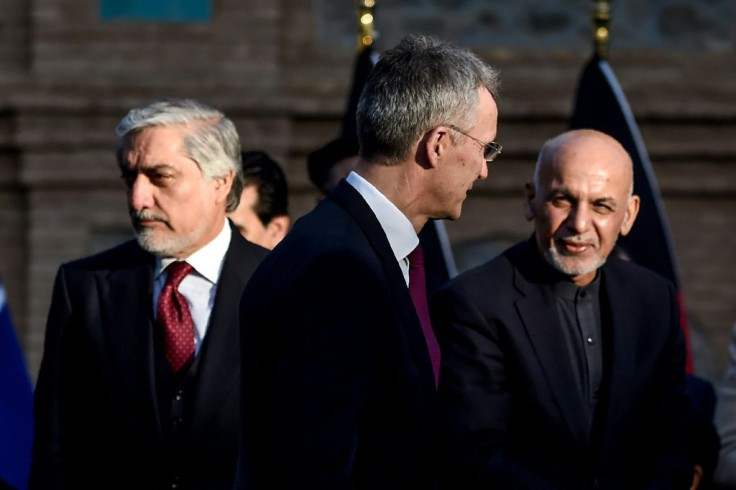
Rocket fire interrupted the swearing-in ceremony Monday for Afghan President Ashraf Ghani, whose second-term win has been undercut by his rival's simultaneously claiming the leadership ahead of critical peace talks with the Taliban.
The bitter feud between Ghani and his former chief executive Abdullah Abdullah raised fresh fears for Afghanistan's fragile democracy as the US announced it had begun withdrawing troops under an agreement signed last month with a resurgent Taliban.
Polls were held in September, but repeated delays and accusations of widespread voter fraud meant that Ghani, the incumbent, was only narrowly declared the winner in February -- sparking a furious response from Abdullah, who vowed to form his own parallel government.
On Monday Ghani, dressed in traditional Afghan clothing and white turban, arrived at the presidential palace to be sworn in. He was surrounded by supporters, senior political figures and foreign dignitaries including US special envoy Zalmay Khalilzad and General Scott Miller, who heads US forces in Afghanistan.
Minutes later, in another corner of the sprawling palace compound, a suit-clad Abdullah inaugurated himself as president, vowing to "safeguard the independence, national sovereignty, territorial integrity" of Afghanistan.
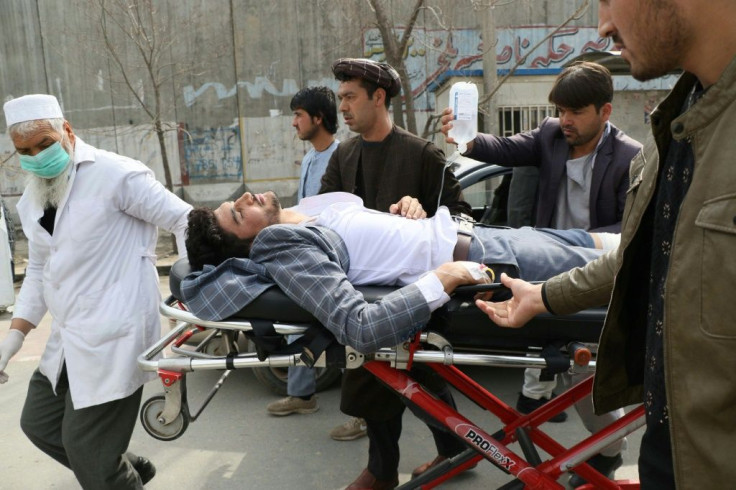
As hundreds of people watched Ghani's ceremony, at least two loud explosions were heard, prompting some to flee.
The interior ministry later said four rockets had struck downtown Kabul, including the wall of the luxury Serena hotel near the palace.
A police officer was slightly wounded.
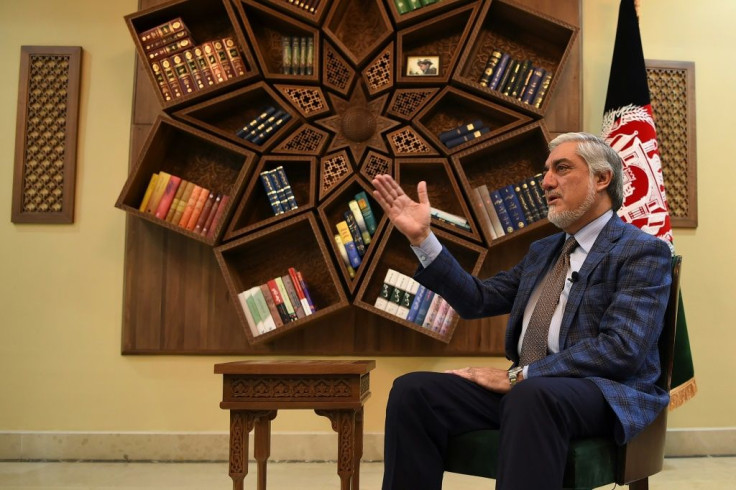
The Islamic State group claimed the blasts, which mirrored a similar incident targeting a Ghani speech in August 2018 that injured six civilians.
"I have no bulletproof vest on, only my shirt," Ghani told those who stayed behind as sirens wailed.
"I will stay even if I have to sacrifice my head."

An AFP reporter saw many of those who fled return to their seats after Ghani's refusal to leave the podium prompted cheers and applause.
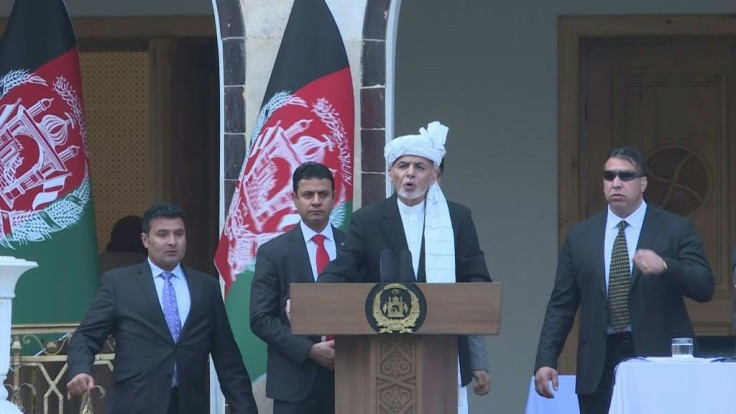
The game of thrones between him and Abdullah has strained the patience of the international community and Afghans alike.
US Secretary of State Mike Pompeo, while not congratulating Ghani, denounced Abdullah's move and urged the Kabul leadership to unite for the sake of peace with the Taliban.
"We strongly oppose any action to establish a parallel government, and any use of force to resolve political differences," Pompeo said in a statement, without naming Abdullah.
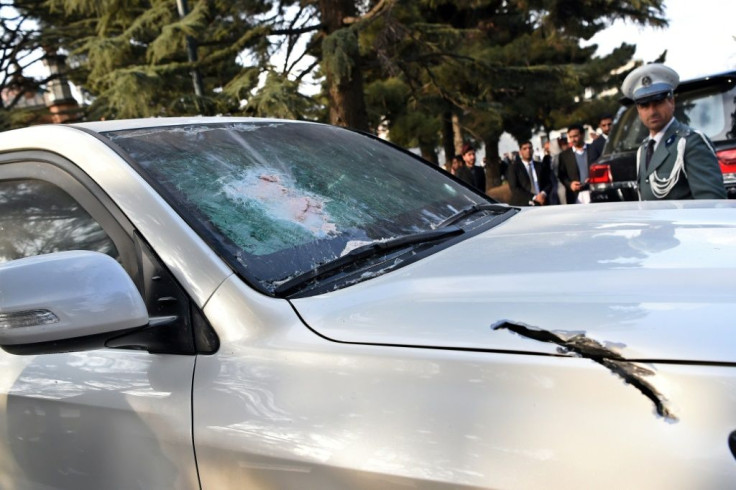
Within hours of the rival swearing-in ceremonies, the US military said it had begun its troop pullout according to the deal.
"US Forces Afghanistan has begun its conditions-based reduction of forces to 8,600 over 135 days," spokesman Colonel Sonny Leggett said in a statement.
The current level is more than 12,000.
According to the agreement signed in Qatar, all foreign troops will withdraw from Afghanistan in 14 months, in return for various security commitments from the Taliban and a pledge to hold the talks with Kabul.
Widening divisions among Afghan politicians would leave the insurgents with the advantage in those negotiations.
The intra-Afghan talks were due to begin on Tuesday but Ghani's government has not released any details of the negotiating team and it is unclear when they may start.
Abdullah said Monday that he would send a separate group to talk to the Taliban.
"One of the first priorities of our government would be to create political consensus, and appoint a negotiating team," he said.
During Monday's speech, Ghani appeared to reach out to his opponents, saying: "Today is the day for unity. We have to think about the future."
"I call on... (past) political rivals to lend me a hand and a shoulder to serve this country. Our mission is peace and ending the 40 years of war," he added.
Afghans have shown little enthusiasm for Abdullah, Ghani or the election process in general, with most abstaining in last year's poll.
In the deadliest attack to hit Afghanistan in weeks, IS gunmen shot dead 32 people and wounded dozens of others at a political rally in Kabul on Friday.
The Taliban, who called the electoral process "a fake and foreign-run" affair, have also ramped up attacks on Afghan forces and civilians.
The insurgents' spokesman Zabihullah Mujahid told AFP the competing ceremonies showed that "nothing is more important to the slaves than their personal interests".
Experts say the infighting is likely to cost the government, which is already under pressure after being shut out of the Doha negotiations for the US-Taliban deal.
© Copyright AFP 2024. All rights reserved.





















